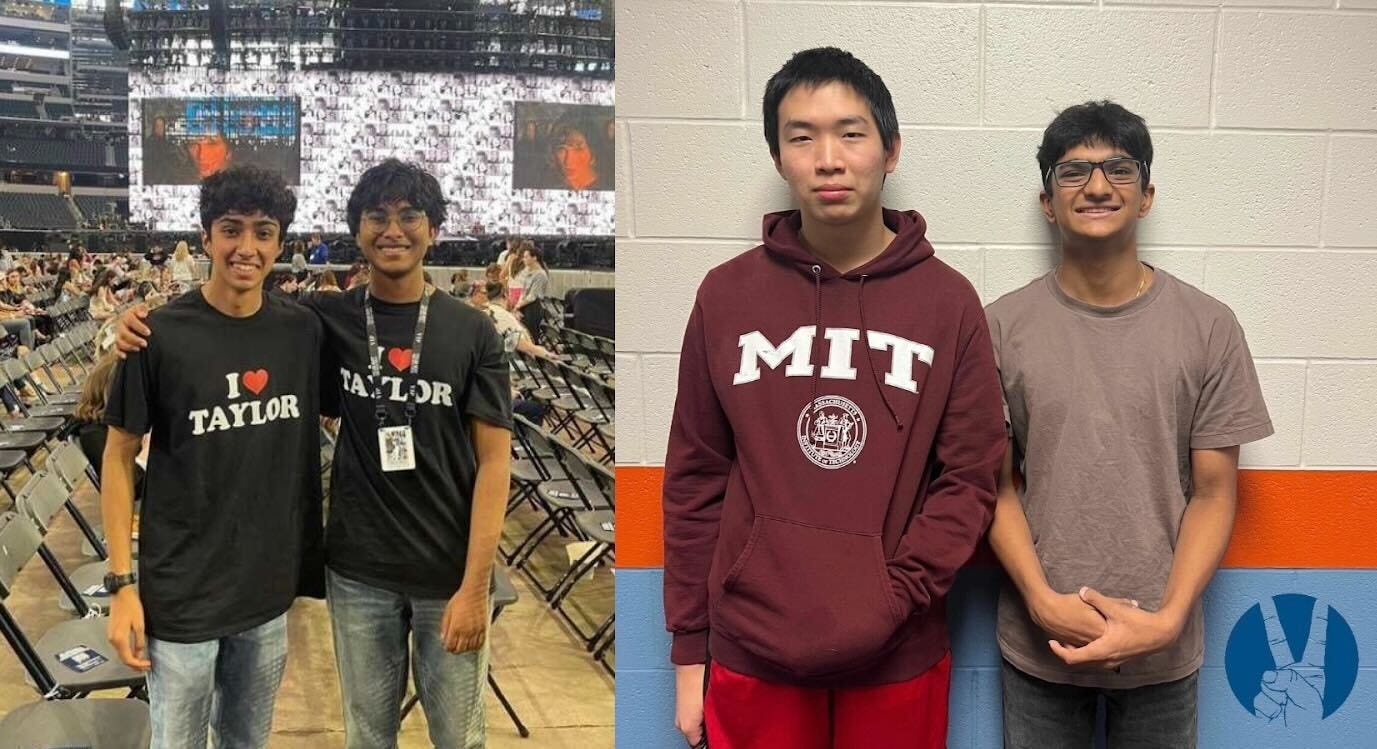9/6-9/13: LD & PF Tournament Results and Finding Your Zen
In case you missed it, check out the Victory Briefs Instagram for some tips for the start of the season from our team of talented instructors!
Lincoln Douglas Debate
Tournament Results
This weekend, LD debaters competed at two bid tournaments: the National Speech and Debate Season Opener and the Grapevine Classic.
Congratulations to Ridge’s Rebecca Davidov for championing the 2023 National Speech and Debate Season Opener. In finals, Rebecca defeated Athenian’s Everett Yau on a 3-0 decision (Kanamangala, Meza, Wiessner). Additional congratulations to St. Agnes’ Ella Huang for being the top speaker.
Full pairings and results can be found here.
Congratulations to Lake Highland Prep’s Harris Layson for championing the 2023 Grapevine Classic. In finals, Harris defeated Strake Jesuit’s Nathan Wei on a 2-1 decision (Myers*, Fox Paramo). Additional congratulations to Strake Jesuit’s Justin Wen for being the top speaker.
Full pairings and results can be found here.
Public Forum Debate
Tournament Results
The start of national competition for the 2023-24 Public Forum Debate season was marked by the National Speech and Debate Season Opener (Online and In-Person divisions) and the Grapevine Classic. Here are some notable results:
In the Online division of the 2023 National Speech and Debate Season Opener, congratulations to Stella Wu and Brendon Chen from Taipei American for championing. In finals, they defeated Arnav Nigam and Nathan Shi from Hamilton on a 3-0 decision (Cole, Gonzaba, Kirylau). Additional congratulations to Acton-Boxborough’s Connor Leo for being the top speaker.
In the In-Person division of the 2023 National Speech and Debate Season Opener, congratulations to Zellie Olson and Eva Redmond from Blake for championing. In finals, they defeated Daniel Guo and Jason Zhao from Strake Jesuit on a 3-0 decision (Adam, Di, Gabay). Additional congratulations to Durham’s Alex Huang for being the top speaker.
Full pairings and results for both divisions can be found here.
Congratulations to Aneesh Kondagunturi and Romeer Pillay from Westlake and Arnav Mehta and David Lu from Seven Lakes for co-championing the 2023 Grapevine Classic. Additional congratulations to Jasper’s Josephina Qiu (VBI ‘23 Alumnus) for being the top speaker.
Full pairings and results can be found here.

Best of luck to everyone competing next weekend, and stay tuned to keep up with future tournament results.
Victory Briefs Classroom Announcement
Victory Briefs Classroom is the only comprehensive education platform for Lincoln-Douglas and Public Forum debate. Whether you’re a novice or expert, student or coach, we have everything you need to become a successful debater or to run a successful program.
Virtual Classroom – The platform includes an expansive and ever-growing collection of high-quality, curated debate lessons & lectures. As of today, we have more than 100 lessons & lectures, with over 250 supplemental activities designed by some of the best instructors in the nation. Virtual Classroom will be continuously growing the library through regular updates, with the aim of being the most expansive online debate curriculum available. We also have a dedicated Novice Core Curriculum and Effective Altruism Curriculum available for everyone at no cost.
Topic Briefs - Since 1991, Victory Briefs has produced the most trusted debate topic briefs in the country. Written by experienced coaches and VBI instructors, our briefs contain numerous topic analyses, and hundreds of pieces of evidence. New to the briefs subscriptions this year are Topic Previews. On the day topic voting opens, we’ll send a sneak peek of our full topic brief for each potential topic at no additional cost. Like the briefs, the preview will contain topic analyses and starter evidence. Our intent is to help teams make informed decisions when voting and to jumpstart topic preparation. As usual, the full brief for the chosen topic will be sent around ten days after the topic is officially announced.
Finding Your Zen in the Debate Arena: Stress Reduction Techniques
by Eva Lamberson
As I’m sure you are all well aware, debate can be an extremely stressful and draining activity. Tournaments eat up weekends and during the week debaters spend hours researching, drilling, and doing practice debates. I know for many people, debate can become something you think about almost constantly. I worry about the stress levels of debaters, especially at a time where studies indicate that teenagers are reporting higher stress levels than ever.
So, in hopes that they will help you all manage your debate-related mental woes, I have compiled a short list of my best tips and advice for staying on top of stress levels both during tournaments and in general, including some resources that you may find helpful.
Taking care of yourself during tournaments
We have actually previously published an article explaining the mental and physical stress that debaters undergo during tournaments, but to say the least: tournaments are exhausting, so it’s key to be aware of your physical and mental health during them. Here are my top three tips for doing so!
Eat and hydrate
I’m sure you all have heard this a million times, but it cannot be overstated. I know a lot of debaters struggle to or forget to eat during tournaments. You may feel as though you don’t have time, you feel too nervous to eat, etc., but it is doing your body, mind, and performance no favors to undereat, especially multiple days in a row. If you are someone who struggles to eat during tournaments, you should take note of what foods you are able to eat and make sure to pack those. It’s especially helpful to have food that is quick and calorie dense — bonus points if it has a lot of protein!
Some examples may include protein bars (or granola/energy bars if you don’t like protein bars — my personal favorites are CLIF Bars,) fruit (fresh will hydrate you, dried is higher calorie and will keep for a few days,) and nuts.
It’s also important to stay hydrated! You’re talking a lot and also (likely) consuming a lot of caffeine and/or sugar, which both run the risk of dehydrating you further. Plus, as it turns out, staying hydrated actually helps regulate stress levels! So REMIND YOURSELF TO DRINK WATER! Set an alarm if you have to. And if you really struggle to stay hydrated/drink water for some reason, try a low sugar electrolyte drink — I strongly recommend Pedialyte powder because it’s super portable.
Sleep
This is also something I know you’ve heard many times, yet it seems you all frequently ignore. I will not belabor the benefits of sleep — we’ve actually already published an article on them, which I would recommend reading if you are a disavower of sleep.
If you are someone who struggles to sleep while stressed, away from home, or just in general, I would strongly recommend taking the time to find something that helps you sleep. For instance, check out green noise! As someone with chronic insomnia that evades most sleeping hacks, this has literally changed my life.
Take time for yourself
It can be easy to get caught up with only debate at debate tournaments (naturally.) But this is a mistake! You should take breaks, even if short, where you aren’t doing anything debate related. Take a walk, listen to music, talk to friends, do a dance — I don’t care what it is, but this is really important for your stress levels and can prevent you from getting overwhelmed by the energy of the tournament. It’s key to take breathers!
Taking care of yourself outside of tournaments
We all know that debate isn’t just something that happens during tournaments — it’s a season-long commitment that can take up your weeks as well as your weekends. As such, it’s important to take stock of your mental health re: debate outside of tournaments too. Here are my top three tips for consistent de-stressing.
Actively prioritize relaxing activities
If you only take one tip from this section, I sincerely hope it is this one. Your mental health is not something that you should be passive about staying on top of — it is important to find and develop helpful habits proactively. There are a million possible stress relieving activities, and they don’t all work for everyone, so I won’t bore you all by going into depth with every possible example.
However, a few examples of what I’m talking about include meditating, painting, exercising, taking walks, and listening to music — the content of the activity is way less important than making a habit of practicing a de-stressing activity every day. Get creative and find what works for you and do it, please.
Talk about your feelings
I know this is probably an unpopular activity for many high schoolers, but when you notice stress and negative emotions, you should talk about them. Debate can force a lot of feelings to crop up and, no matter what they are, it’s important to sort through those feelings.
There’s a number of ways to externalize your emotions (again, more about the act than the specifics) and a lot of evidence indicates that doing so is extremely key to stress management. If it feels too difficult to talk about your feelings with people in your life, you may try journaling first — it is an independently great tool for identifying and dealing with stressors.
Practice self-confidence
Seriously, you all need to be more positive. It can be hard not to compare yourself to others or to build up an image of a ‘perfect debater’ in your brain, but you should do your best to reject that sort of negativity and cut yourself some slack.
One of the best ways to do this is self-affirmations — try, every day when you wake up or before you go to sleep, identifying positive things about yourself. It might feel silly, but self-affirmation genuinely boosts self-image and reduces the negative reactions you have when faced with threats to your confidence.
This is another instance where journaling can be useful. Positive affect journaling (writing about positive aspects of your life and self) has been shown to increase well-being and mitigate stress. There’s a number of possible prompts, so I would encourage you all to try a few out!
Conclusion
I think debate is a wonderful activity, one that can help debaters in so many ways. But it’s also an activity with a lot of stressors, so it’s extremely important for you all to be aware of those stressors and actively prioritize your mental health in debate. Hopefully at least some of these tips can help you do so! Please feel free to reach out to me with any questions — evathelamberson@gmail.com.
I hope you all have a happy, healthy, and wonderful debate season!









